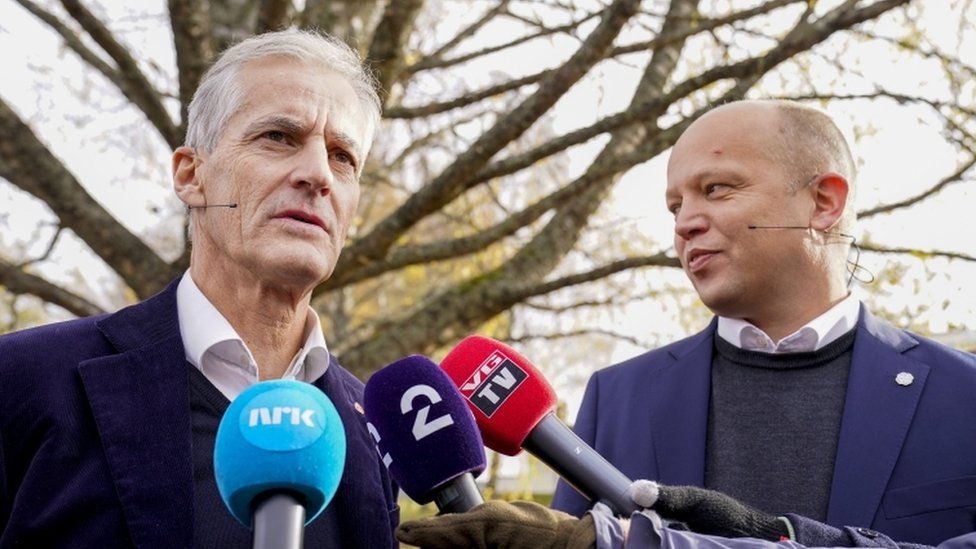Norway's oil and gas sector will not be dismantled, new government says
- Published

Norway's incoming centre-left government has said it will seek to grow the country's lucrative oil and gas industry while striving to cut carbon emissions.
The Labour Party-led coalition unveiled its energy policy before taking office after last month's general election.
The government said it wanted to slash net emissions by 55% by 2030.
But it said the move to green energy would be gradual in Norway, western Europe's largest oil and gas producer.
"The oil and gas sector will be developed, not dismantled," the coalition said in a policy document released on Wednesday.
The minority coalition of the Labour and Centre parties will replace the conservative-led government that ruled Norway for eight years.
The transition towards renewable energy and away from oil and gas - the backbone of Norway's economy - will be one of the new government's biggest challenges.
The petroleum sector accounts for about 40% of Norway's exports and 14% of its gross domestic product (GDP).
While Norway's reliance on oil and gas drew scrutiny during the election campaign, the new government said it had to balance social and economic considerations with climate change targets.
"Climate policy must not be moralising and must be fair," the coalition's policy paper said.
The government affirmed its commitment to continued oil and gas exploration just weeks before the key international climate summit in Scotland known as COP26.
The summit is being seen as a crucial opportunity for governments to agree on tougher targets for lowering carbon emissions.
In August, a landmark United Nations study said fossil fuel emissions caused by humans were changing the climate in unprecedented and potentially catastrophic ways.
To curb emissions, Norway's government said it would honour a plan to raise the country's carbon tax to 2,000 Norwegian kroner (£173; $230) per tonne.
But Karoline Andaur of the Norwegian WWF told AFP news agency the measures do not go far enough and were "horrifying in terms of the still high activity in oil and gas".
In contrast Norwegian Oil and Gas, a lobby group, told Reuters news agency the plan would "ensure continued development and value creation from oil and gas, but also to finance a green transition".
The government's new emissions target brings Norway into line with the European Union. The EU is also aiming to reduce net emissions by 55% by 2030, from 1990 levels.
Although Norway is not a member of the EU, it is closely aligned through its membership in the European Economic Area (EEA) and the Schengen free-travel area.
Can a country be a climate leader and benefit from oil wealth?
Related Topics
- Published4 November 2020
- Published3 October 2021
- Published6 October 2019